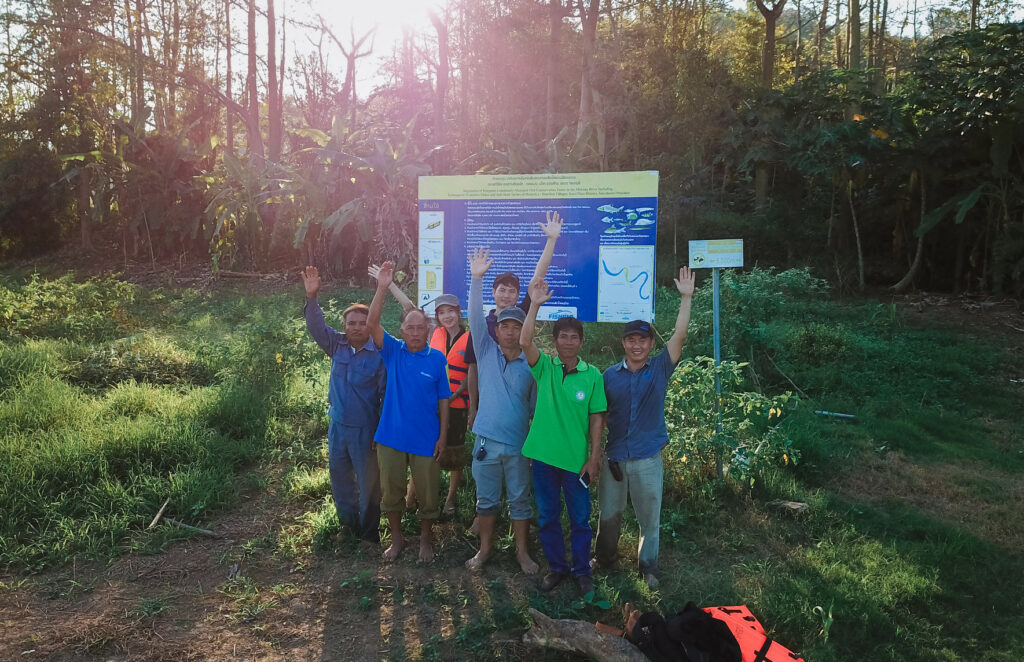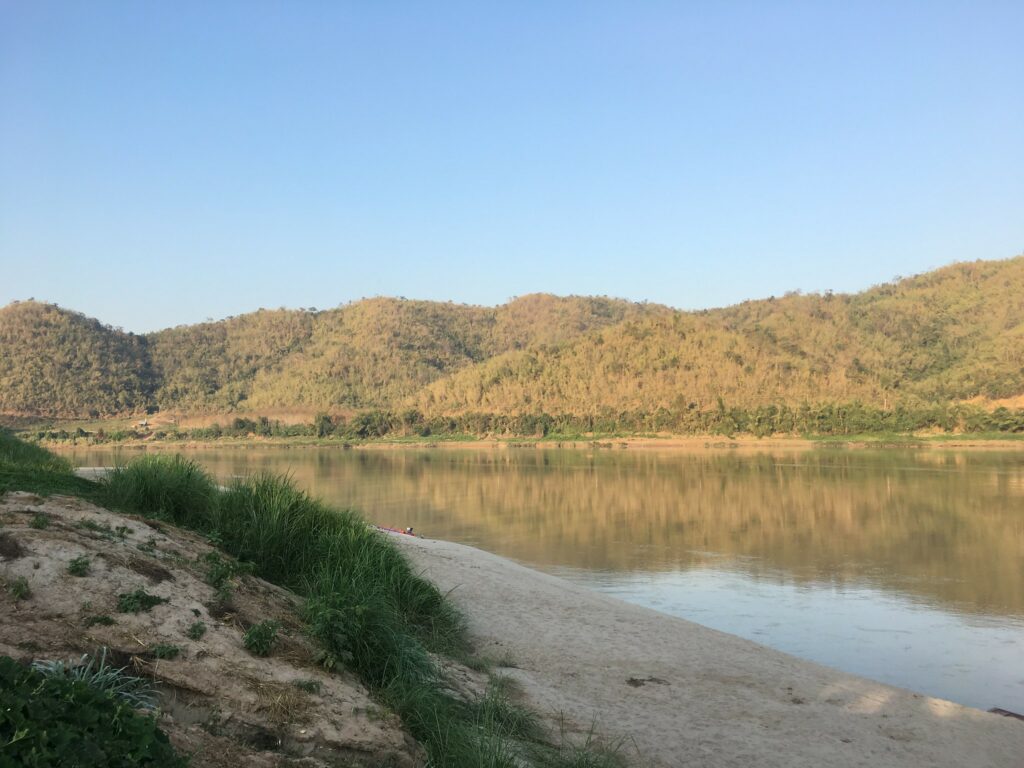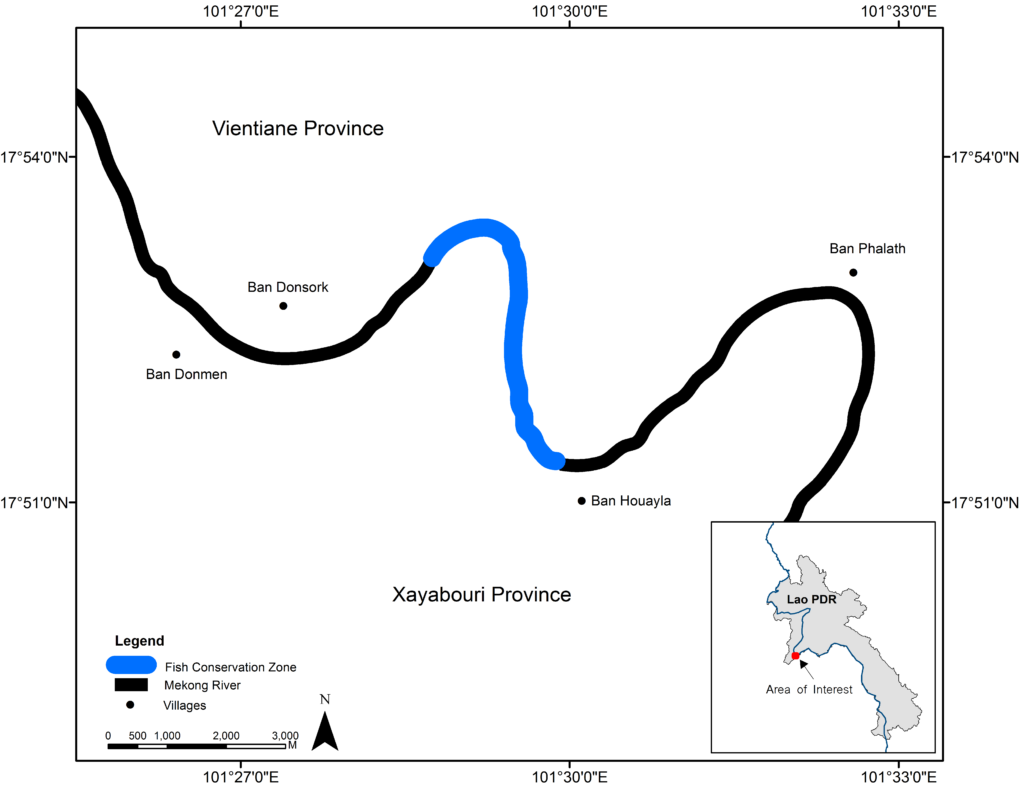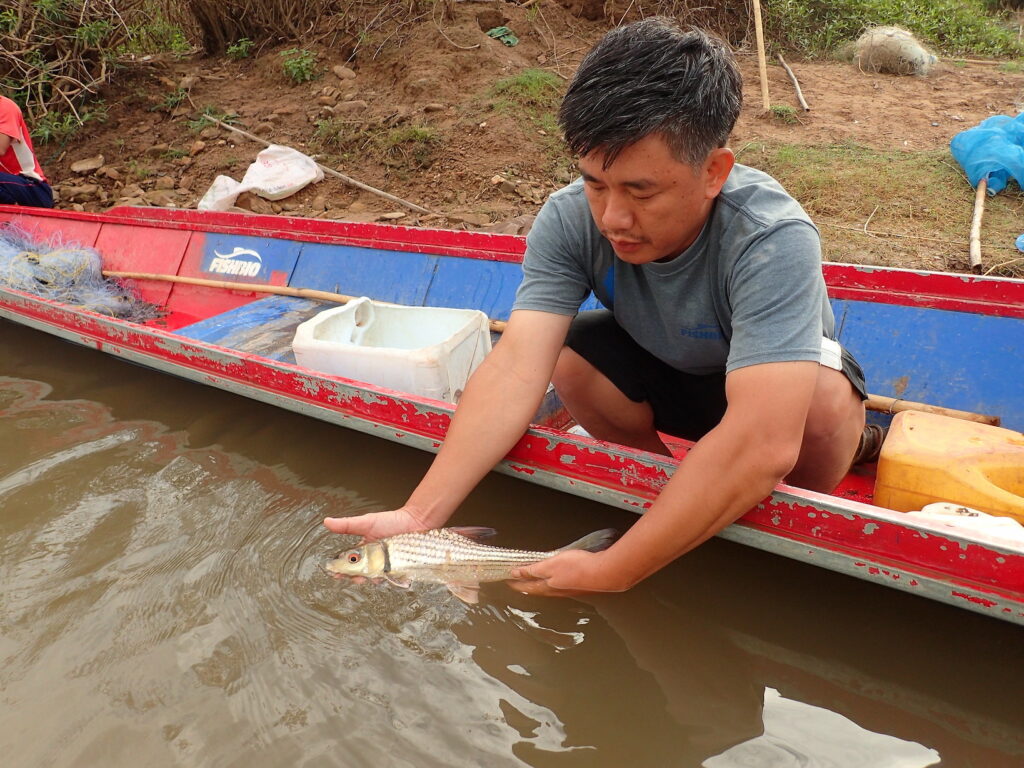


Villages in Lao People’s Democratic Republic (Lao PDR) are authorized to set their own regulations for fisheries management under the Lao fisheries law and establish community-managed freshwater fish reserves, which are known as Fish Conservation Zones (FCZs). From 2015–2020, FISHBIO received a series of grants from the Critical Ecosystem Partnership Fund to formally establish and strengthen a community-managed Fish Conservation Zone on the mainstem Mekong River in a region known as Kengmai Rapids between Xayabouri and Vientiane provinces. Based on local knowledge surveys conducted by IUCN in 2014, the Kengmai Rapids area was identified as potential spawning habitat for the endangered Jullien’s golden carp (Probarbus jullieni) and thick-lipped barb (Probarbus labeamajor), as well as habitat for the Asiatic soft-shell turtle (Amyda cartilaginea), making it a priority area for freshwater biodiversity conservation.

FISHBIO worked with the four villages surrounding Kengmai Rapids to develop and finalize the regulations for the FCZ: Donsok and Phalath villages in Vientiane Province, and Donmen and Houayla villages in Xayabouri Province. After the regulations received the necessary approvals from the respective district governors’ offices, the FCZ was officially established in November 2015. The Kengmai Rapids FCZ is a no-take area that prohibits all fishing along a 5-km length of the Mekong River, and covers a total area of approximately 215 hectares. The goals of the FCZ are to protect spawning Probarbus, and to protect freshwater fishes more generally to support local livelihoods and food security. Community members supported the establishment of the FCZ as a means to address threats of destructive illegal electrofishing and dynamite fishing in the area.

FISHBIO helped design and install signs and boundary markers for the FCZ, and provided training and equipment for community enforcement teams. The Kengmai Rapids FCZ was included in a later FISHBIO project to establish a network of FCZs on the Mekong River in Lao PDR, which included three previously established FCZs upstream in northern Lao PDR, and two new FCZs downstream near Vientiane Capital. This network project included the construction of guard platforms to facilitate patrolling, the installation of a spirit house to connect the FCZ to local Buddhist beliefs, and a study tour that allowed community members to visit and learn about other FCZs in the network. An evaluation of the Kengmai Rapids FCZ using an assessment guidebook developed by FISHBIO confirmed the use of the habitat by juvenile Probarbus fishes.
